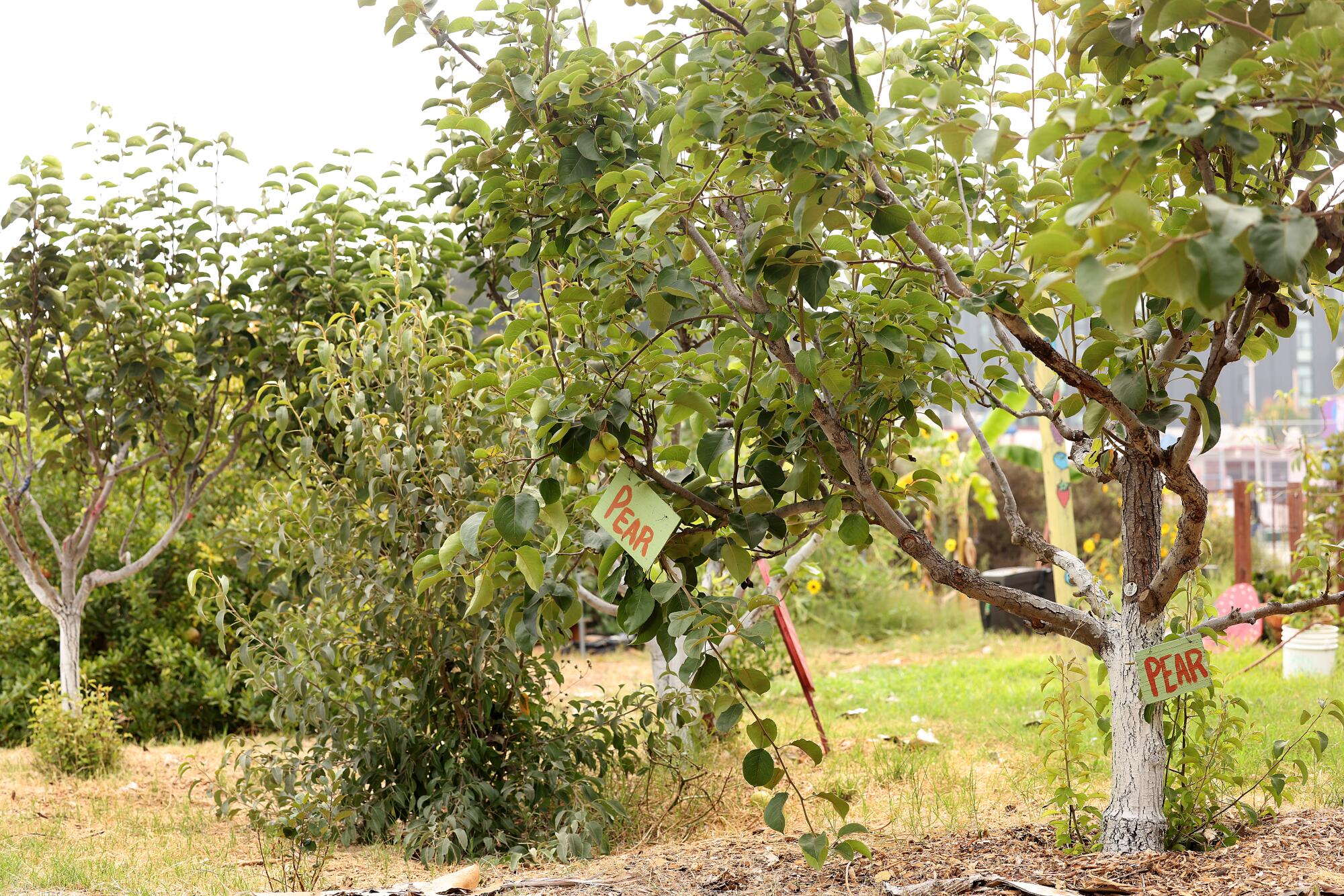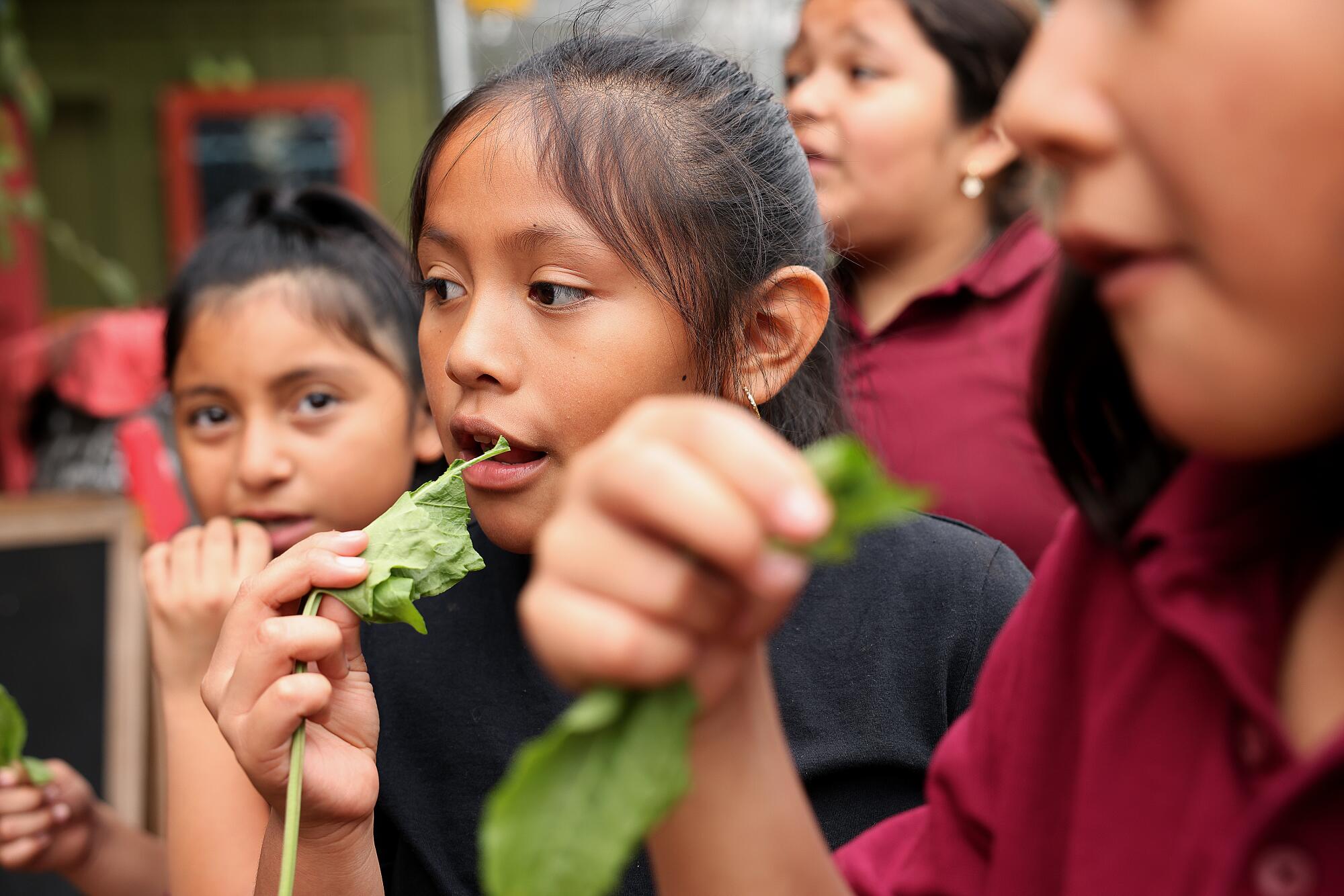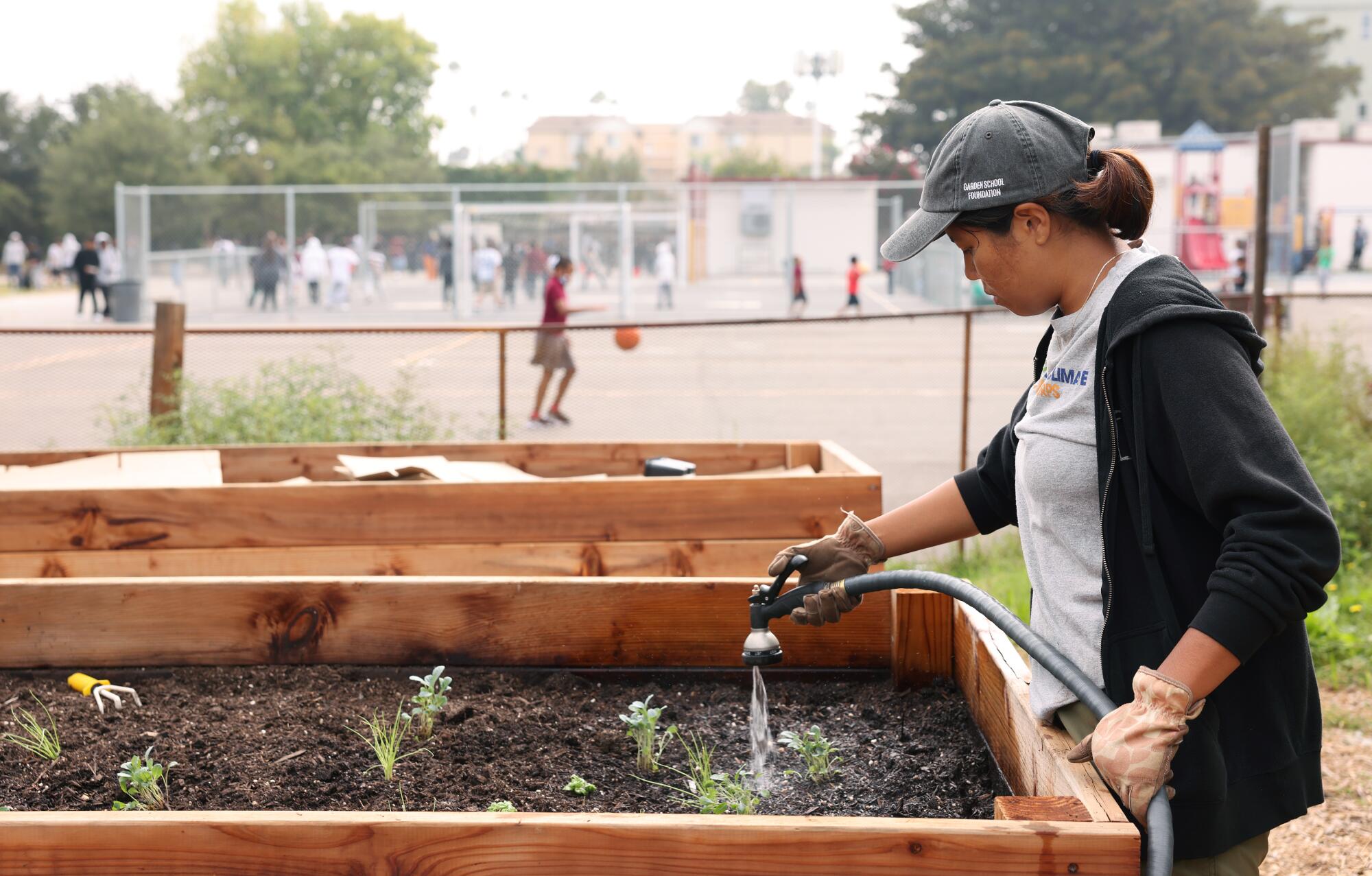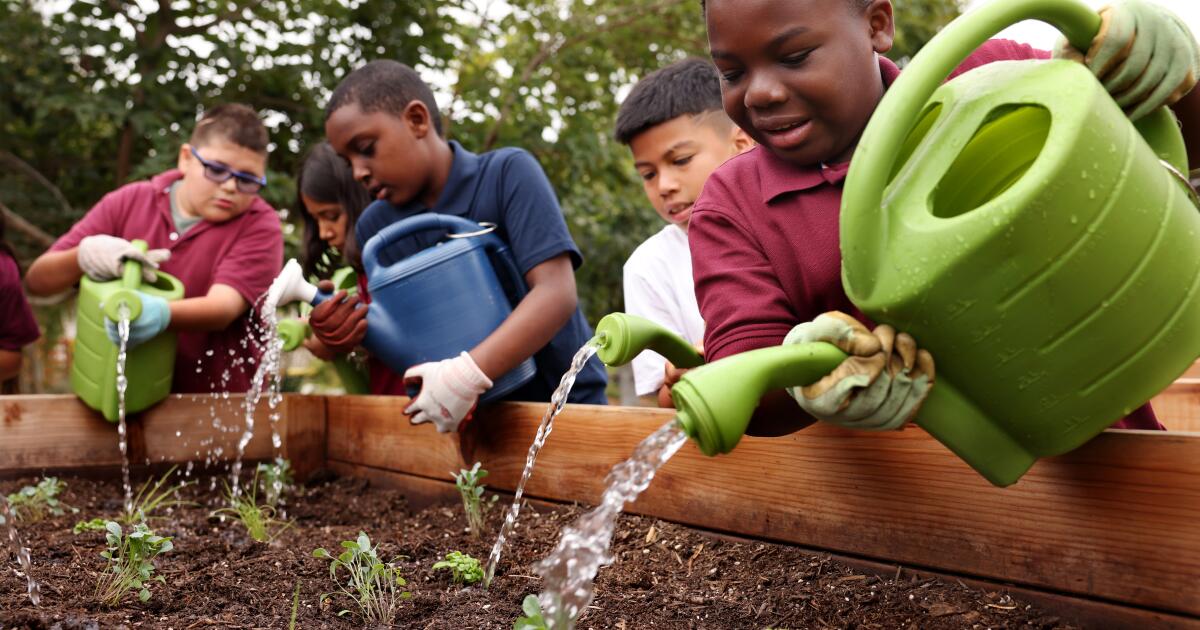Twenty years ago, a few of Los Angeles’ West Adams residents and their friends had a novel idea: take a jackhammer to break up the asphalt and cement at their neighborhood’s 24th Street Elementary School to plant shade trees and a garden.
They created the Garden School Foundation to support the project, which school and foundation officials believe was a farsighted decision. Elizabeth Hall, the foundation’s head of outreach and development, says the 24th Street School gardens are critical to teaching climate literacy to 453 pre-kindergarten through fourth-grade students. About 90% of the students are classified as low-income at the Title I school.

An orchard including pear trees at 24th Street Elementary School’s garden.
(Christina House / Los Angeles Times)
There is a deep desire on the part of the school’s teachers to teach climate literacy, said Hall. But few LAUSD teachers have been trained to do it.
An outdoor learning center sits at the heart of the 24th Street Elementary School garden, which now covers a lush acre with groves of shade trees, an orchard with kumquats, apples, pears and pomegranates, and too many vegetable, herb and flower beds to count.

Our Climate Change Challenge
Creating their own curriculum
California wants climate education for its students. Meet some of the teachers, schools and nonprofits making it happen.
The foundation developed the curriculum for outdoor learning, Hall said, which is integrated into regular classroom science lessons as well as other subjects, particularly language arts.
24th Street Elementary is “special,” said principal Veronica Brown, now in her second year. Students learn where their food comes from, how to grow it and cook it, and then recycle the waste into compost. “These things should be replicated at every school,” she added.
This spring the school was named a California Green Ribbon School — the only one in the Los Angeles Unified School District. The award recognizes campuses that have reduced their environmental impact and costs, improved the health and wellness of students and staff, and provided an effective environmental education.
What’s the best thing about the garden? Earlier this year, three third-graders said they liked the sunflowers and eating fruit, particularly mulberries. They were pleased that “the juice stains your clothes.”

Mildred Hernandez, center, and other students taste sour sorrel in the garden at 24th Street Elementary School.
(Christina House / Los Angeles Times)
The nonprofit’s close relationship with school staff has made it easier to survive staff changes and LAUSD’s budget woes, Hall said. When a full-time garden teacher takes another job, the foundation is able to step in and find a temporary replacement until a permanent teacher can be hired.
The foundation maintains the gardens and organizes 1,400 hours of community volunteer time each year at this particular school.
It raised $210,000 last year to support the full-time garden-based teacher, part-time staff positions filled by parents, a twice-monthly free farmers market for school families and a lunchtime share table where students can leave unopened cafeteria food or take seconds.
24th Street School is one of 10 Los Angeles Title I schools — where at least 40% of enrolled students are from low-income families eligible to receive a free or reduced-price lunch — with garden programs supported by the foundation.

Garden assistant Nurjannah Wiryadimejo waters plants in the garden while students are at recess in the playground at 24th Street Elementary School.
(Christina House / Los Angeles Times)
The goal of the garden program is to create lifelong sustainability habits in the students and their families, Hall said. Last year, the school turned 16,000 pounds of cafeteria food waste into 1,600 pounds of compost.
“Once kids understand how to do it and why, they like the ickiness of it,” said Ann Dang, the school’s compost manager. “They dig into the muck. And push their parents to do it at home.”
